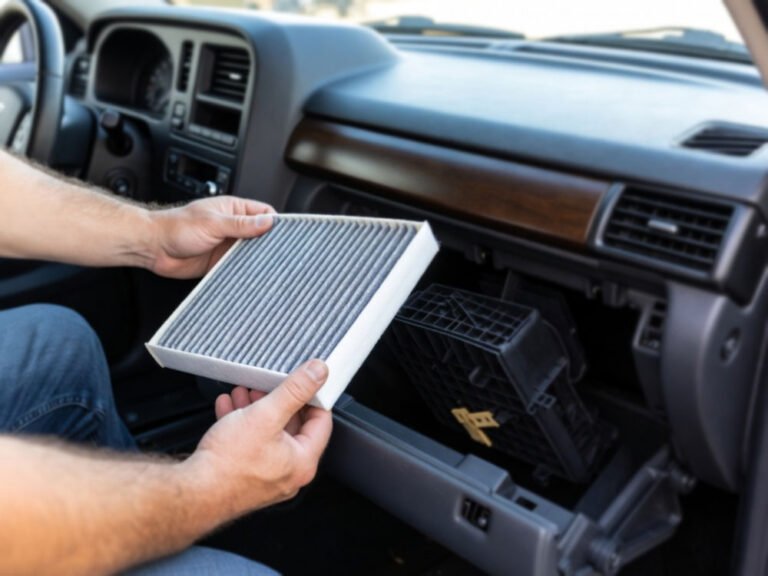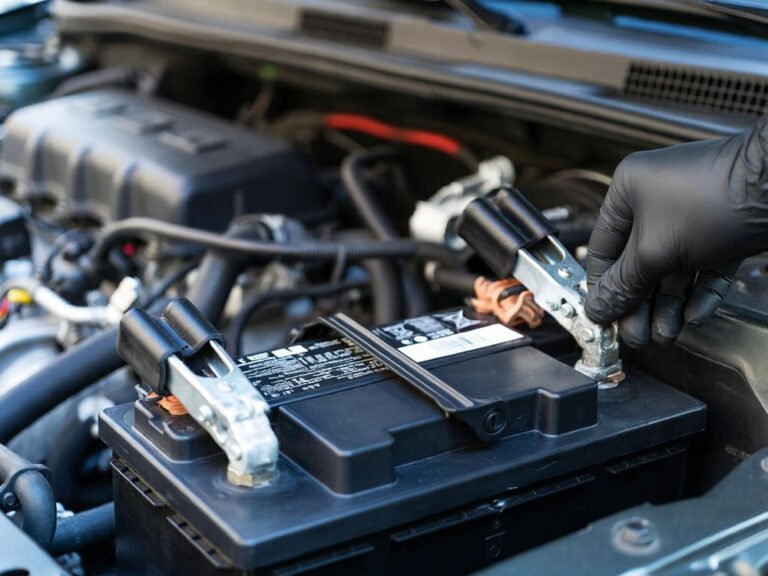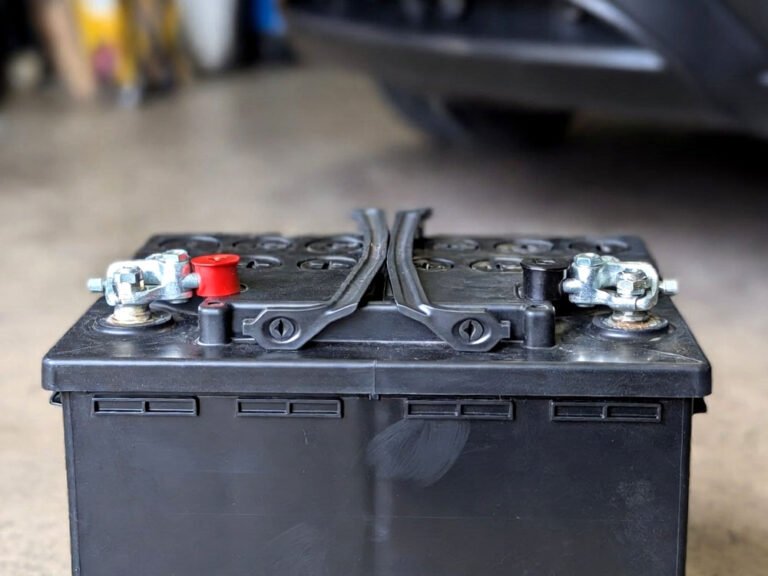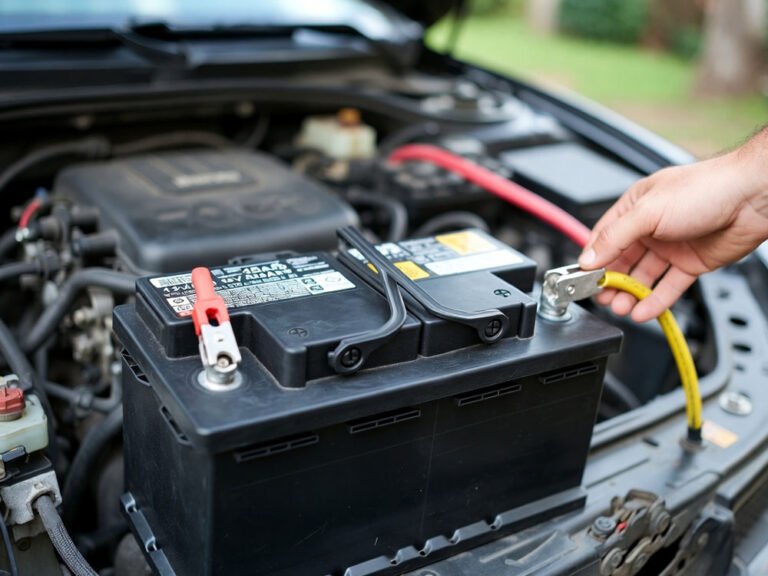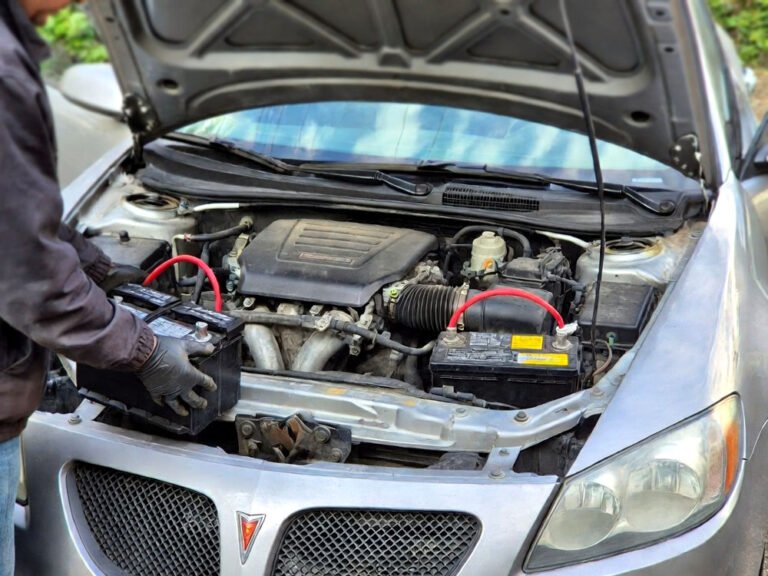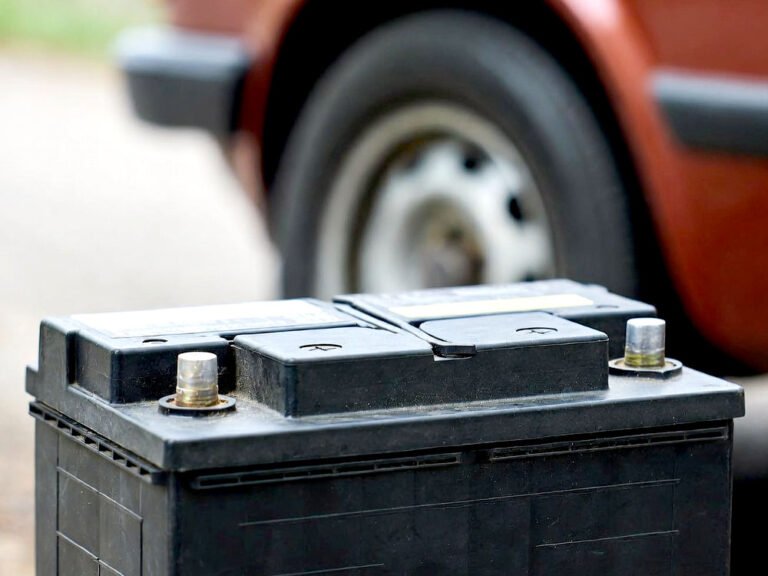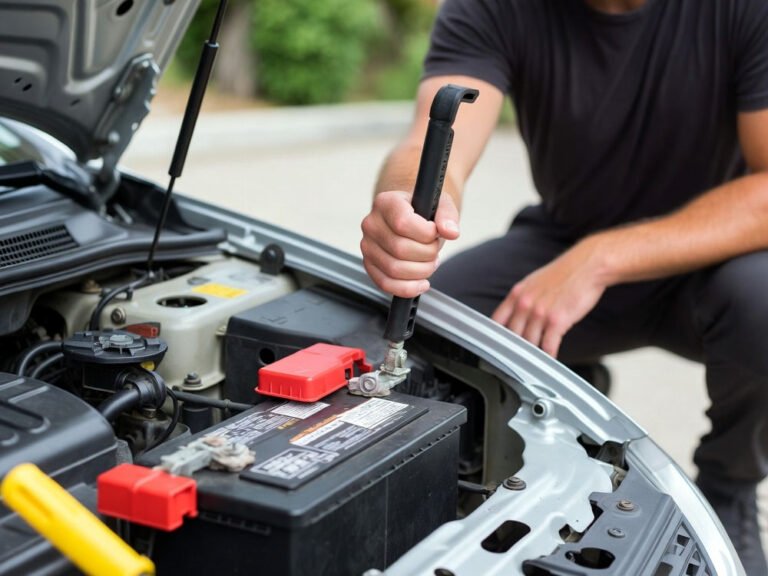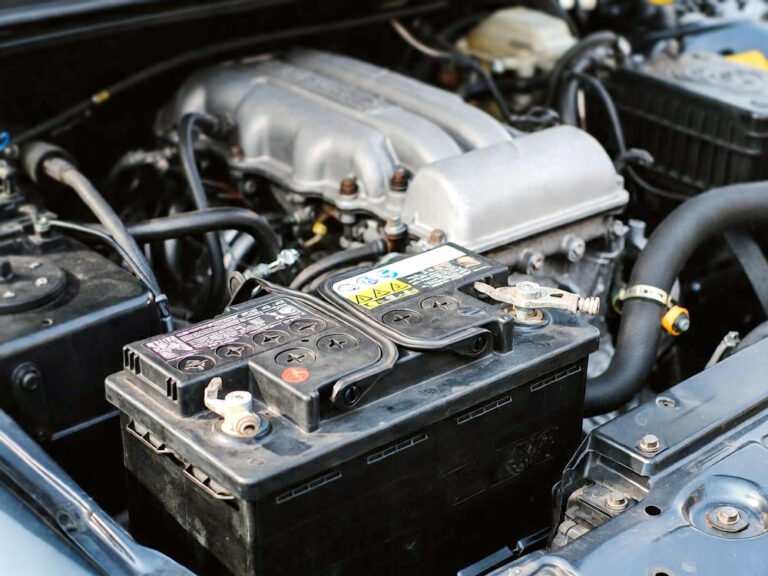Have you ever walked out to your car after a good night’s rest, only to find a suspicious puddle of liquid beneath it? If the liquid in question is a colorful fluid, chances are it’s antifreeze. And if you notice it’s leaking only when the car’s parked, you’re not alone.
Many car owners encounter this issue, and it can be concerning. But don’t panic! We’re here to break down everything you need to know about why your car leaks antifreeze when parked and how to handle it. Let’s dive into the common causes, how to diagnose the problem, and what you can do about it.
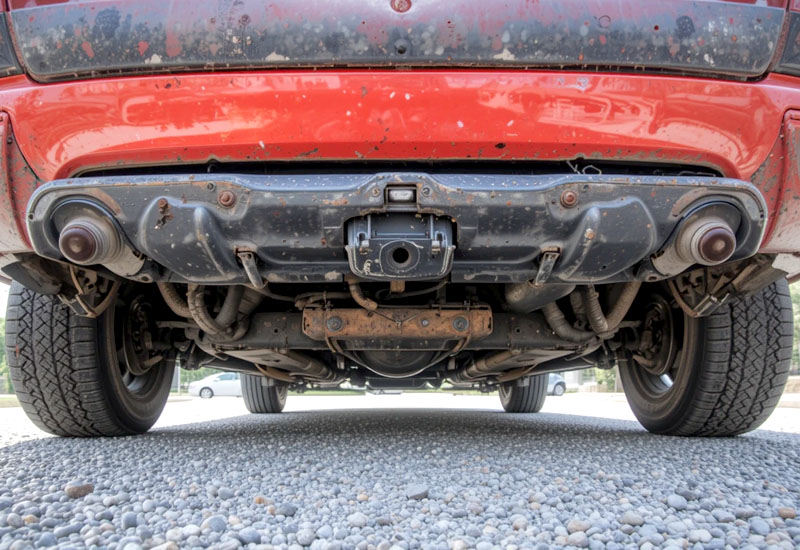
Common Causes of Antifreeze Leaks in Parked Cars
When you see antifreeze pooling underneath your car, it’s essential to understand the root causes. Antifreeze leaks don’t just happen out of nowhere, and they’re often a sign that something’s off under the hood. Let’s break down the most common causes of antifreeze leaks, focusing specifically on when your car is parked.
1. Worn-out or Damaged Hoses
One of the most common culprits for antifreeze leaks is damaged hoses. These rubber tubes are responsible for carrying coolant throughout your engine, and they’re essential for your car’s cooling system to work properly. Over time, hoses can crack, split, or even get pinched, causing leaks to occur. This damage can result from age, exposure to heat, or general wear and tear.
When you park your car, gravity does its job, and coolant that has been slowly leaking from a hose may pool under the car. This is especially noticeable if your car is parked in one position for an extended period. If you suspect a hose leak, it’s worth checking them all (radiator, heater, and bypass hoses) for any visible signs of wear. They might have cracks or be brittle in some places, allowing antifreeze to escape.
2. A Faulty Radiator Cap
The radiator cap is more important than you might think. It serves as a seal for the cooling system, maintaining the correct pressure and preventing coolant from evaporating. If the cap is faulty, damaged, or simply doesn’t fit properly, it can allow antifreeze to leak out. Sometimes, the leak is so small that you only notice it when the car is parked for a while and the pressure from the cooling system shifts.
It’s easy to overlook the radiator cap, but if you’re noticing that antifreeze is leaking when the car is parked, it’s a good idea to check it for any signs of wear or damage. Fortunately, radiator caps are inexpensive to replace, so fixing this issue is typically a quick and easy job.
3. Leaky or Cracked Radiator
The radiator itself plays a critical role in keeping your engine cool by circulating coolant throughout the system. Over time, however, radiators can develop cracks due to road debris, corrosion, or simple wear and tear. A cracked radiator can lead to a slow, consistent leak that only becomes noticeable when the car is parked and the engine cools down.
Radiators are built to last, but they’re not indestructible. If you notice puddles of coolant under your car after it’s parked, it’s a good idea to inspect the radiator for any visible damage. A small crack can turn into a bigger problem if not addressed, so getting it replaced sooner rather than later is the best course of action.
4. Leaking Water Pump
Your car’s water pump is responsible for circulating coolant throughout the engine, ensuring it doesn’t overheat. If the water pump starts to fail or has a leak, you might start noticing antifreeze under your car when it’s parked. Often, the issue stems from a faulty seal or gasket on the water pump. This can allow coolant to seep out, especially when the car has cooled down after a drive.
Water pump issues are serious and should be addressed immediately, as driving with a leaking water pump can lead to engine overheating. If you suspect this could be the cause of your antifreeze leak, it’s best to have a professional mechanic take a look as soon as possible.
5. Cracked or Faulty Heater Core
The heater core is part of your car’s heating system, and it uses antifreeze to warm up the cabin. If the heater core is cracked or damaged, it can lead to antifreeze leaks. You may even notice a sweet smell inside your car if the leak is significant enough. While it’s more common to notice antifreeze leaks while driving, a heater core leak can also cause pooling when the car is parked, as the coolant slowly drips out.
Diagnosing a heater core leak can be tricky because the leak is often internal. However, if you notice a decrease in cabin heat or an odd smell, it’s worth investigating. A mechanic can test the system to confirm whether the heater core is the source of the leak.
How to Diagnose an Antifreeze Leak in Your Parked Car
If you’re dealing with an antifreeze leak when your car is parked, the first thing to do is to pinpoint the exact cause of the issue. Diagnosing the problem early can save you a lot of time and money, and it’s not always as hard as it sounds. With the right approach, you can identify the source of the leak and decide what to do next.
Step 1: Inspect the Ground Under the Car
The first thing you’ll notice is the puddle of liquid beneath your car. Antifreeze is usually brightly colored (green, orange, or pink), so it’s easy to spot. Look closely at the puddle. Is it just clear water, or is it the distinct, colorful antifreeze? If it’s the latter, you know you have a coolant leak on your hands.
Before jumping to conclusions, try to determine how much liquid is leaking. A few drops here and there might not be a cause for immediate concern, but a consistent, large puddle could indicate a bigger problem. Take a moment to note whether the leak appears after you’ve driven the car or just after you’ve parked it.
Step 2: Check the Coolant Level
Pop the hood and take a look at your coolant reservoir. If you see that the coolant level is lower than normal, it’s a sign that the leak has been happening for a while. If your coolant is low and there’s an antifreeze puddle under the car, you likely have a significant leak that needs attention.
Top off the coolant if needed, but don’t drive your car without ensuring it’s properly filled. A low coolant level can cause the engine to overheat, leading to severe engine damage.
Step 3: Inspect the Radiator and Hoses
Once you’ve checked the coolant level, turn your attention to the radiator and hoses. Look for visible cracks or signs of wear. The radiator should be free from any signs of damage, and the hoses should be soft to the touch but not brittle or cracked. If the hoses appear damaged or the radiator shows signs of corrosion, these are the likely sources of your antifreeze leak.
If you can’t spot any obvious signs of damage, try feeling along the length of the hoses for wet spots or coolant residue. Sometimes, leaks can be small enough to be undetectable by sight alone, but you can still feel them.
Step 4: Look for Signs of a Heater Core Leak
If the leak isn’t coming from the radiator or hoses, it’s time to look at the heater core. Check for any signs of coolant pooling near the cabin or under the dashboard. If you notice a sweet smell or find that the windshield fogs up easily, there’s a good chance the heater core is the culprit. Unfortunately, diagnosing and fixing a heater core leak typically requires professional help, so don’t hesitate to take your car to a mechanic if you suspect this is the problem.
Step 5: Take Your Car for a Pressure Test
If you’ve gone through these steps and still haven’t figured out where the leak is coming from, consider taking your car in for a pressure test. A mechanic can pressurize the cooling system and look for any leaks that may not be visible under normal conditions. This is a more in-depth test, but it’s effective in identifying leaks that are otherwise hard to locate.
What to Do When Your Car Leaks Antifreeze While Parked
Now that you know the common causes and how to diagnose an antifreeze leak in your car, you might be wondering what to do next. Here’s what you should do when you find yourself in this situation.
Step 1: Don’t Panic
The first thing to remember is not to panic. While an antifreeze leak is something you should take seriously, it’s often fixable with the right tools and knowledge. Most of the time, these leaks are caused by worn-out parts, such as hoses or radiator caps, which can be replaced without major issues. However, if the leak is coming from something like the water pump or heater core, you might need professional help.
Step 2: Temporarily Seal the Leak (If Possible)
If the leak is minor and you’re in a pinch, you may be able to temporarily seal it until you can get to a mechanic. You can purchase an emergency radiator sealant or coolant stop leak at most auto parts stores. This is typically a temporary fix and should not be relied upon as a long-term solution. It’s ideal for getting you through a short period until the repair can be done properly.
Make sure to top off the coolant levels as needed before driving. Running your car with low coolant can cause severe engine damage.
Step 3: Get the Leak Fixed by a Mechanic
Regardless of the size of the leak, it’s important to get it fixed. A coolant leak can lead to bigger problems, such as engine overheating, which could cause permanent damage to the engine. If you aren’t confident in diagnosing or fixing the leak yourself, it’s time to consult a professional mechanic.
Let them know that the antifreeze leaks when your car is parked and describe any other symptoms you’ve noticed. The mechanic will likely perform a pressure test, inspect the hoses, radiator, and water pump, and replace any damaged components as needed.
Step 4: Check for Recurring Leaks
Once your car is repaired, make sure to keep an eye on the coolant levels and check under the car regularly for any signs of a leak. If the problem persists, it could indicate a more serious underlying issue that needs further attention.
I hope this article has helped shed some light on why your car might be leaking antifreeze when parked. From damaged hoses to faulty radiator caps, understanding the root causes will help you take the right steps to address the issue. Whether it’s a minor fix or a more significant repair, catching the problem early can save you money and hassle in the long run.
Frequently Asked Questions
Is it safe to drive a car with a small antifreeze leak?
Driving with a small antifreeze leak is generally not recommended, as it can lead to engine overheating and more severe damage. It’s best to fix the leak as soon as possible.
Can a cracked radiator cause antifreeze to leak only when the car is parked?
Yes, a cracked radiator can lead to a slow leak that may only be noticeable when the car is parked. Gravity helps the coolant pool under the car while it’s stationary.
Do I need to replace the entire radiator if it has a small crack?
It depends on the severity of the crack. Some small cracks may be repairable, but in many cases, it’s best to replace the radiator to prevent future issues.
Is it possible to temporarily fix an antifreeze leak with sealant?
Yes, you can temporarily seal an antifreeze leak using radiator stop leak products. However, this is only a short-term solution, and a proper repair should be done as soon as possible.
Can a faulty water pump cause antifreeze to leak when the car is parked?
Yes, a leaking water pump can cause antifreeze to drip under the car when parked, especially if the gasket or seal is damaged.
Is it expensive to replace a water pump?
Replacing a water pump can be moderately expensive, depending on your car’s make and model. Labor costs can make up a significant portion of the price.
Can I drive my car if the heater core is leaking antifreeze?
If the heater core is leaking antifreeze, it’s best to avoid driving the car. A heater core leak can lead to overheating and other major engine issues.
Do I need to check my antifreeze levels regularly?
Yes, regularly checking your antifreeze levels helps ensure your car’s engine stays cool and prevents overheating. Low coolant can lead to severe engine damage if not addressed.


